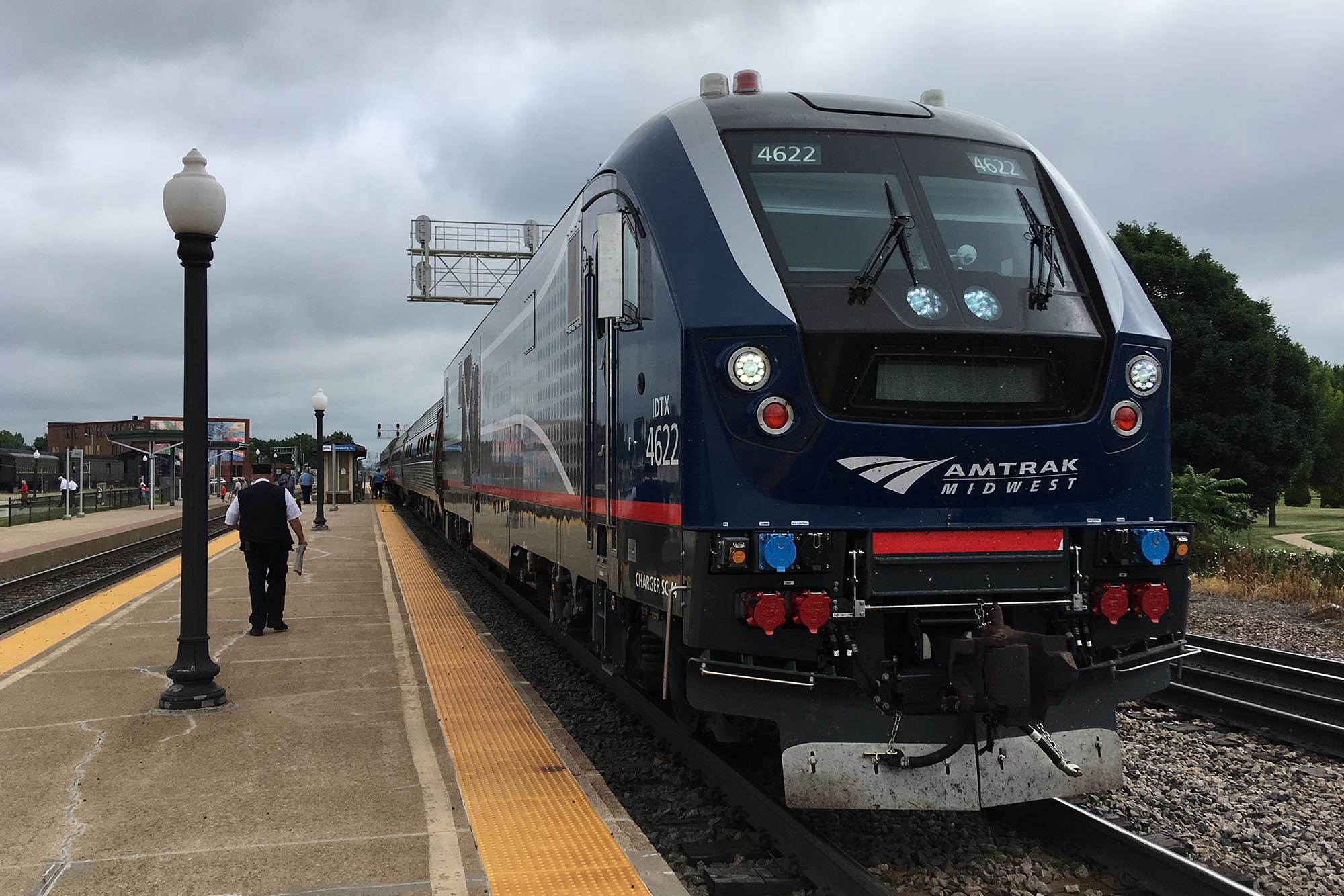Last week while forest fires were raging in California, Governor Gavin Newsom issued an executive order declaring a goal of eliminating fossil fuels from the transportation sector. The order called for ending all sales of fossil fuel-powered vehicles by 2035 and calls on various California state agencies to formulate strategies and regulations to create a “just” transition away from fossil fuel reliance.
The executive order may appear to be a bold action compared to what Newsom's counterparts in other states are doing -- or, rather, not doing to address climate change. But Streetsblog California's Melanie Curry shared concerns the order actually doesn’t go far enough. I agree that the order does not address the urgency of the need for a just transition from fossil fuels.
While Illinois is not a particularly high-risk state when it comes to climate change, the Land of Lincoln will inevitably be impacted by global warming. Additionally, due to its relative climate resilience, Illinois will likely see an increase in climate refugees. We should have been preparing for this reality a decade ago, but it’s not too late to create an Illinois Green New Deal. Transportation is the number one source of greenhouse emissions in Illinois. Luckily there’s a lot we can do to reduce transportation-related greenhouse emissions. In addition to making plans to prohibit the sale of gas-powered vehicles, Governor J.B. Pritzker can take the following steps to create a Green New Deal in Illinois’ Transportation Sector:
- Mandate that the Illinois Department of Transportation work to reduce vehicle miles travelled and increase the mode share of transit, biking, and walking by 30 percent in the next decade. In addition, IDOT should be required to create hundreds of miles of bus-only lanes and thousands of miles of on-street protected bike lanes within the next decade. This work should be completed in a way that advances racial equity and meets the previous goal of reducing VMT and increasing the adoption of sustainable travel modes. IDOT should also be mandated to conduct a walking assessment of state-controlled roads, making sure that there are safe and convenient pedestrian accommodations.
- Place a moratorium on highway creation and expansion. The Active Transportation Alliance called for this back in 2018 and it’s even more relevant now, because with a likely increase in folks working from home in the coming years, highway expansion is especially foolish. Along with a moratorium on highways, we should follow the lead of New Jersey and peg the gas tax with necessary funding for highway maintenance.
- Mandate climate change warning stickers for gas station pumps.
- Implement a state vehicle tax based on miles travelled. This will become increasingly important as more people switch to hybrid or all-electric cars.
- Increase state funding for transit and lower the required farebox recovery ratio, currently 50 percent, to reduce the pressure on transit agencies to rely on fares to survive.
- Strongly advocate for Illinois state lawmakers to give the green light to camera-based enforcement of bus-only lanes and perhaps even bike lanes.
- Increase state funding for Amtrak service within the state. The funding hike should be used to increase and expand rail service. This will help passenger rail better able to compete with car travel as a convenient travel option.
- Increase available funding for equitable transit-oriented (or even biking-oriented) affordable housing developments
- Establish higher taxes and fees for SUV registration. In addition to higher fees for SUVs, drivers should be presented with an option to learn about electric bikes as a valid form of transportation, including for hauling cargo. I recently learned through the War on Cars podcast about a non-profit in Vermont that the Vermont Agency of Transportation has partnered with to introduce Vermont residents to e-bikes. With the state of Illinois creating safe infrastructure for people to ride on, biking can become a more accessible form of transportation.
- Provide vouchers for e-bike purchases. Second to a lack of safe bike infrastructure, cost is one of the top barriers to e-bike adoption. Funds from a tax on SUVs can fund vouchers for e-bike purchase. Given that e-bike riders are more likely to replace car trips than non-electric bikes, e-bikes deserve special consideration for state and city subsidies. This subsidy will pay off in less pollution, increased public health, and more household funds freed from the expense of car ownership.
- Provide tax credits for businesses that purchase electric cargo bikes.
Follow Courtney Cobbs on Twitter at @CourtneyCyclez.




